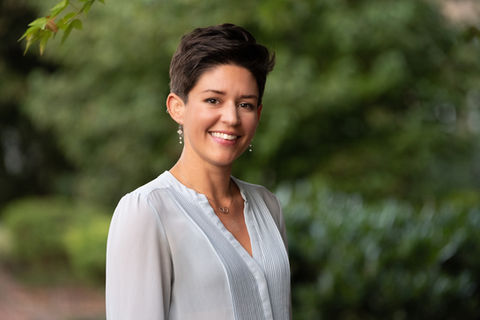
Welcome to Family & Child Therapy
Our downtown Vienna, Virginia therapy practice has been in business for over ten years. We understand the unique needs and challenges that children, families, and adults face in today's world. We welcome all individuals and diverse populations, including those from various ethnic and cultural backgrounds, those identifying as LGBTQ+, neurodivergent individuals, refugees and immigrants, and survivors of trauma or abuse. We provide individual, group, and family therapy to all ages.

Our Therapy Space
Vienna, Virginia
We provide authentic and empathic counseling services. We serve our clients in the Vienna and surrounding areas of Northern Virginia. Therapy can be beneficial for anyone who is struggling, regardless of their background or identity. Family & Child Therapy has expertise in offering leading edge techniques. We use trauma-informed therapies such as Eye Movement Desensitization and Reprocessing (EMDR) to help our clients not only cope — but to thrive.




Frequently Asked Questions
These frequently asked questions cover common inquiries about our services, from how our practice operates to what to expect from testing and therapy.

Practice-Related Questions
Q: Do you accept insurance?
A: We are a self-pay practice, but we are insurance-friendly. That means we provide superbills for reimbursement, and we partner with Mentaya, a service that can submit out-of-network claims on your behalf for a small fee (5% of the reimbursement). Many of our clients with PPO plans are able to get partial reimbursement through this process.
Q: Do you provide medication management in addition to therapy?
A: We do not offer medication management directly. However, we have strong collaborative relationships with psychiatrists and psychiatric nurse practitioners in the area and are happy to refer you. We’re also glad to coordinate care with any current providers to support a cohesive treatment plan.
Q: Are there social skills groups or similar supports available at your practice?
A: Yes! We have a social play group facilitated by our Clinical Director, Tisha Moon. This group is designed to support connection, communication, and co-regulation and social navigation through play.
Q: Can you support a child who becomes aggressive when emotionally frustrated?
A:Yes. Our clinicians are experienced in supporting children with intense emotions, including those who may become physically dysregulated. We often use play therapy to help children build emotional awareness, regulate their nervous systems, and increase confidence in handling big feelings safely.
Q: What is your current availability for starting services?
A: Availability can vary by clinician, but we’ll work with you to find the best fit as soon as possible.

Testing-Related Questions
Q: Isn’t a cognitive assessment just an IQ test?
A: Not quite. A full cognitive profile goes beyond IQ. It shows how someone thinks, solves problems, remembers information, and processes what they see and hear. This helps identify how they learn best, where they may get stuck, and what supports will actually help. For twice-exceptional (2e) kids, it can be key to understanding their full potential.
Q: Does getting a diagnosis like ADHD or Autism mean labeling a child?
A: No. A diagnosis doesn’t put a child in a box, it helps take them out of the wrong one. It gives families clearer language, options, and access to helpful support.

Therapy-Related Questions
Q: Why does my child fall apart at home after doing fine all day at school?
A: That’s common for kids who mask. Holding it together all day is exhausting. Home feels safer—so the meltdown isn’t about misbehavior, it’s about release.
Q: Why is my child only melting down with me and not others?
A: That usually means they feel safest with you. Emotional unloading at home is common, especially for kids who spend the day masking their feelings at school.
Q: What is executive functioning, and why does it matter?
A: Executive functioning includes planning, starting, shifting, and finishing tasks. When it’s hard, it may look like avoidance, but it’s often about working memory limits and mental fatigue, not laziness
Q: Is ADHD just about not paying attention?
A: No, ADHD is really about difficulty regulating attention. That means someone might hyperfocus on one task but struggle to shift gears when needed. It’s not a matter of willpower—it’s how their brain works.
Q: Can anxiety show up as something other than worry?
A: Yes, especially in kids. Anxiety can look like irritability, stomachaches, perfectionism, or even shutdowns. What may seem like “bad behavior” is often a nervous system seeking safety.
Q: Is OCD just about being neat and organized?
A: Not at all. OCD involves cycles of intrusive thoughts and compulsive behaviors that are often distressing and hard to interrupt. It’s frequently misunderstood and goes beyond tidiness or routines.
Q: Can OCD show up in ways other than handwashing or checking?
A: Yes. It can look like needing things to feel “just right,” asking the same questions repeatedly, or seeking constant reassurance. These are all part of the OCD cycle.
Our Family, Adult & Child Therapists
Meet the Team
If you are a parent who has worried about your child’s safety in the community, we can help. If you have moved from another country and you or your family has struggled to adapt to or thrive in the new culture, we can support you. If you feel out of place in your community because of the color of your skin, gender, or sexuality, we are here to listen.
Learn more about how we serve adults, teens and young adults, children and parents.
Contact us at 571-261-7764 to schedule a consultation.













